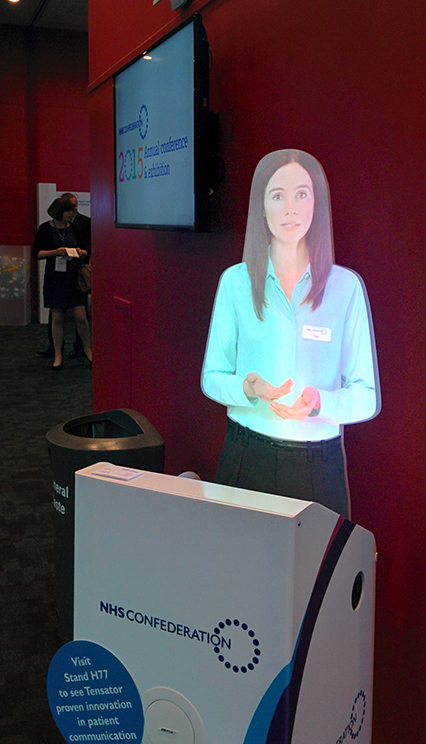- Home
- Sectors
- Solutions
- Tensabarrier®
- Tensator® Charging Stations
- Tensamedia® Wayfinding and Signage
- Lawrence® Post & Rope
- Tensator® Airport Passenger Guidance System
- Electronic Queuing – eQ™
- Tensaguide® Modular Barrier System
- Tensator Micam Protection – TMP
- Safety Solutions
- Access Control
- In-Queue Merchandising
- Holographic Virtual Assistant
- Virtual Queuing – VQMS
- Custom & Bespoke Solutions
- Resources
- About
- Contact Us
- Shop
 English (English)
English (English)
Tensator Virtual Assistant is a conference hit
15
Jul

Delegates broke away from their busy schedules at the NHS Confederation Conference to learn more about the Tensator Virtual Assistant.
Senior health and care leaders, decision-makers and stakeholders who recently visited the event in Liverpool were welcomed by the Tensator Virtual Assistant. Positioned at the entrance of the event, the Tensator Virtual Assistant offered a range of services designed to improve the delegate experience, such as providing information on sessions throughout the day and giving details on where delegate could charge up mobiles and laptops.
Many delegates were drawn to the Tensator Group stand, where they witnessed the Tensator Virtual Assistant showcase its benefits in a medical and healthcare setting. The enthusiasm for the new technology was encouraging, particularly from those who had never seen the equipment before. Many delegates returned to the stand with colleagues curious to discover more, and subsequently booked onsite demonstrations for the months ahead.
Ross Edwards, Senior Partnerships Officer at the NHS Confederation, captured the mood among delegates, declaring: “Having a Tensator Virtual Assistant at our annual conference really helped to add a new dimension to the event and was definitely a worthwhile addition to the exhibition. We feel its quality and position in the exhibition entrance enhanced the experience for our delegates and proved to be very popular with those who attended.”
With operational efficiency at the forefront of NHS targets, the Tensator Virtual Assistant demonstrated how it can provide a unique and compelling solution that can answer the most frequently asked questions, freeing up staff time and allowing them to handle more urgent and personalised requirements. The Tensator Virtual Assistant is already installed in several NHS foundation trusts, such as the Liverpool Women’s and Luton and Dunstable University Hospital, and is used for patient guidance and infection control.
The healthcare sector has an increasing responsibility to communicate better with patients. Opinion at the conference reflected this commitment and reinforced the view that solutions such as the Tensator Virtual Assistant, which has been proven to be ten times more effective at influencing behavioural changes than any other form of digital signage, will continue to be of vast importance in shaping patient flow management in the NHS.



